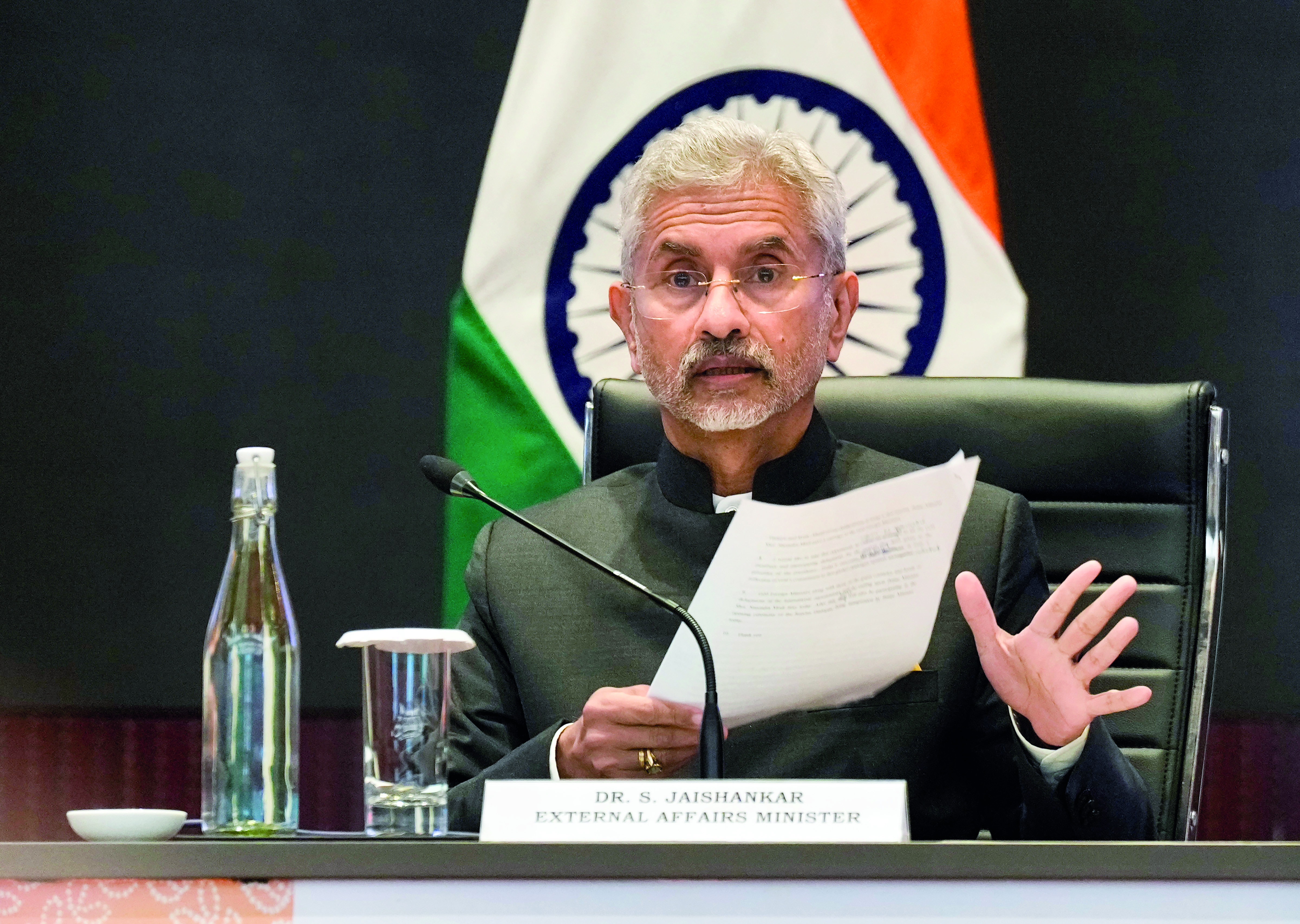‘No joint communique due to differences over Russia-Ukr war’

New Delhi: No ‘consensus’ could be reached among the G20 member countries due to sharp rift between the West and Russia over the Ukraine conflict despite the efforts by host India to bridge the differences at the foreign ministers’ meeting (FMM) held on Thursday here.
External Affairs Minister S Jaishankar claimed that because of the polarised views, on one particular issue, it was not possible to bridge them.
The meeting, held under India’s presidency, adopted a Chair’s Summary and Outcome Document listing various key priorities for the grouping.
While addressing the media, Jaishankar said, “In diplomacy, there are occasions, where you can get 20 countries agreed, and there are many occasions, when you do not.
For me, the primary objective of the meeting and our Presidency to G20 are to highlight key problems the global economy is facing.”
Meanwhile, the outcome document mentioned, “The war in Ukraine has further adversely impacted the global economy. There was a discussion on the issue. We reiterated our national positions as expressed in other fora, including the UN Security Council and the UN General Assembly, which, in Resolution No. ES-11/1 dated 2 March 2022, as adopted by majority vote (141 votes for, 5 against, 35 abstentions, 12 absent) deplores in the strongest terms the aggression by the Russian Federation against Ukraine and demands its complete and unconditional withdrawal from the territory of Ukraine.”
It further added, “Most members strongly condemned the war in Ukraine and stressed it is causing immense human suffering and exacerbating existing fragilities in the global economy- constraining growth, increasing inflation, disrupting supply chains, heightening energy and food insecurity, and elevating financial stability risks.”
At the same time, the document also highlighted that it is essential to uphold international law and the multilateral system that safeguards peace and stability. This includes defending all the purposes and principles enshrined in the Charter of the United Nations and adhering to international humanitarian law, including the protection of civilians and infrastructure in armed conflicts.
“The use or threat of use of nuclear weapons is inadmissible. The peaceful resolution of conflicts, efforts to address crises, as well as diplomacy and dialogue, are vital. Today’s era must not be of war,” it added. However, due to differences in views, the member countries could not come on the same page.
At the same time, during the G20 FMM, held at the Rashtrapati Bhawan, 11 major points, including, strengthening multilateralism, food and energy security, climate change and biodiversity, global health, development cooperation, new and emerging technologies, counterterrorism, counternarcotics, global skill mapping, humanitarian assistance and disaster risk reduction, and gender equality and women’s empowerment were discussed.
The G20 member countries have agreed upon deliberations and macro policy cooperation provides a valuable opportunity for bringing fresh perspectives and forging durable solutions to collectively respond to contemporary global challenges.
The member countries also agreed that more inclusive and reinvigorated multilateralism and reform- aimed at implementing the 2030 agenda is essential. Moreover, promoting the availability, accessibility, affordability, sustainability, equity and transparent flow of food and agricultural products including fertilizers in all corners of the globe, to fight hunger and malnutrition is the need of the hour. Supply chains of both food and agricultural products including fertilizers should be kept reliable, open and transparent.
Recognising that gender inequality and other factors may lead to inequitable access to food systems, all member countries also agreed that special attention is required to addressing the food insecurity and malnutrition of women and girls, communities and people in vulnerable situations, as well as to unlocking their full, meaningful and effective participation in food systems.
Besides, in pursuit of the objective of UNFCCC, to tackle climate change by strengthening the full and effective implementation of the Paris Agreement and its temperature goal, the G20 foreign ministers agreed to play their parts fully in implementing the Glasgow Climate Pact, the Sharm el-Sheikh Implementation Plan, and the relevant outcomes of previous COPs and CMAs to revisit and strengthen the 2030 targets. Members further urge developed countries to fulfil their commitments to deliver on the goal of jointly mobilising USD 100 billion per year urgently by 2020 and through 2025 in the context of meaningful mitigation action and transparency on implementation.
While discussing global health the foreign ministers and other international organisations also agreed that the threat of future pandemics is very real, and the countries must work collectively to institutionalize and operationalize the multi-sectoral actions needed for health emergencies prevention, preparedness, and response.
The growing threat from the misuse of new and emerging technologies for terrorist purposes was also discussed during the meeting. The G20 member countries also condemned terrorism in all its forms and manifestations, including those based on xenophobia, racism and other forms of intolerance, or the name of religion or belief, recognizing the commitment of all religions to peace. It constitutes one of the most serious threats to international peace and security. They also agreed upon countering illicit international drug supply chains, including synthetic drugs, is essential for global health and security and requires enhanced cooperation, including through the existing, relevant international legal instruments, to counter the production, trafficking, demand for and illicit profits from these dangerous substances. The proliferation of illicit drugs and precursor chemicals should be disrupted at origin, transit, and destination points, the member countries said. Further, there was a discussion over international cooperation, including cooperation from a variety of public and private sources, which is essential to mobilise flexible and sustainable resources, preparedness and disaster risk reduction, anticipatory and early action, rapid response and early recovery activities, as well as building community-level resilience.



